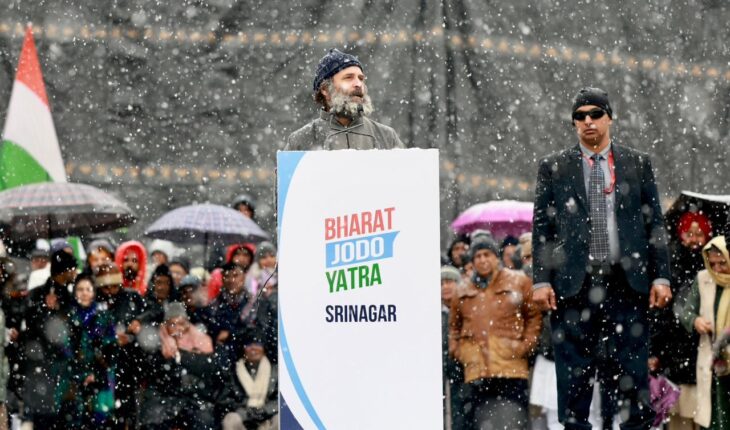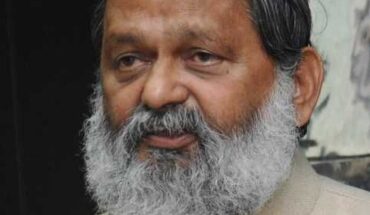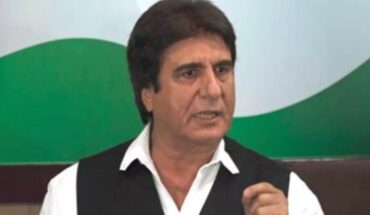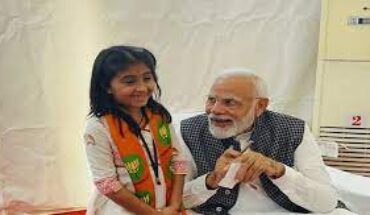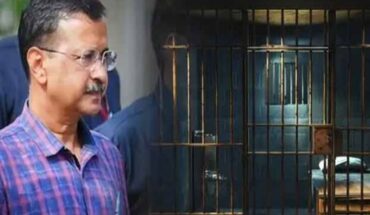Srinagar : It was snowing hard in Srinagar, the capital of Jammu and Kashmir, when the concluding ceremony of the Bharat Jodo Yatra took place on the morning of 30 January, 2023. Rahul Gandhi was finally donning a pheran, the traditional Kashmiri coat, as he delivered an emotionally rousing speech, delineating the aim and achievement of the Yatra.
Gandhi said it was a home-coming for him, as he understood the pain of the Kashmiris. Invoking the brutal assassinations of his grandmother and father, Gandhi said he dared himself to confront his fears, and overcome them. He had decided he would walk the final leg of the 4080-km-long Bharat Jodo Yatra in the snow-clad valleys of Kashmir, and despite security apprehensions, walk he did.
Gandhi’s speech at the Sher-e-Kashmir stadium in Srinagar under a fluttering tricolour struck a chord with the ordinary Kashmiris, Muslims and Hindu alike, those with mutilated hopes and dashed dreams. Coming from the depths of compassion and camaraderie, its resonance for the beleaguered peoples of Kashmir couldn’t be denied.
Gandhi had said in his previous interactions in Jammu and Kashmir that the restoration of the region’s statehood and rekindling of the democratic process were top priorities for the Indian National Congress. Gandhi has walked with both the Abdullahs and the Muftis, putting up a united front that was determined to return the democratic and electoral rights of the people of J&K, as well as Ladakh.
Starting from Kanyakumari, India’s southernmost point, on September 7, 2022, and walking all the way to Srinagar, over a five-month period, is a staggering feat for Rahul Gandhi and the Bharat Yatris. Lakhs of people joined Gandhi on the way, from cinema superstars to top politicians to former sportspersons, artists, writers, academics, activists, and even retired army persons, bankers, bureaucrats and former spymasters. To walk with Rahul Gandhi on this historic Yatra has been a statement in itself, an act of resistance at every step, as well as an act of solidarity with the walk’s intentions – to heal a wounded nation, to mend the yawning cracks in its national psyche with the sparkling gold of love, fraternity, compassion and justice.
Over the course of the Yatra, Gandhi conducted several press conferences as well as group and one-on-one interactions, but most of all, he carefully listened to the plaintiff heart of neglected, marginalised Indians – those displaced and uprooted from their lands, the victims of police atrocities, victims of communal pogroms and organised religious violence, the jobless and the homeless, men, women and children from every stratum of society.
The Yatra has been described as a “river” by Gandhi several times, taking along peoples from every corner of the country, a mini-nation on the move.
